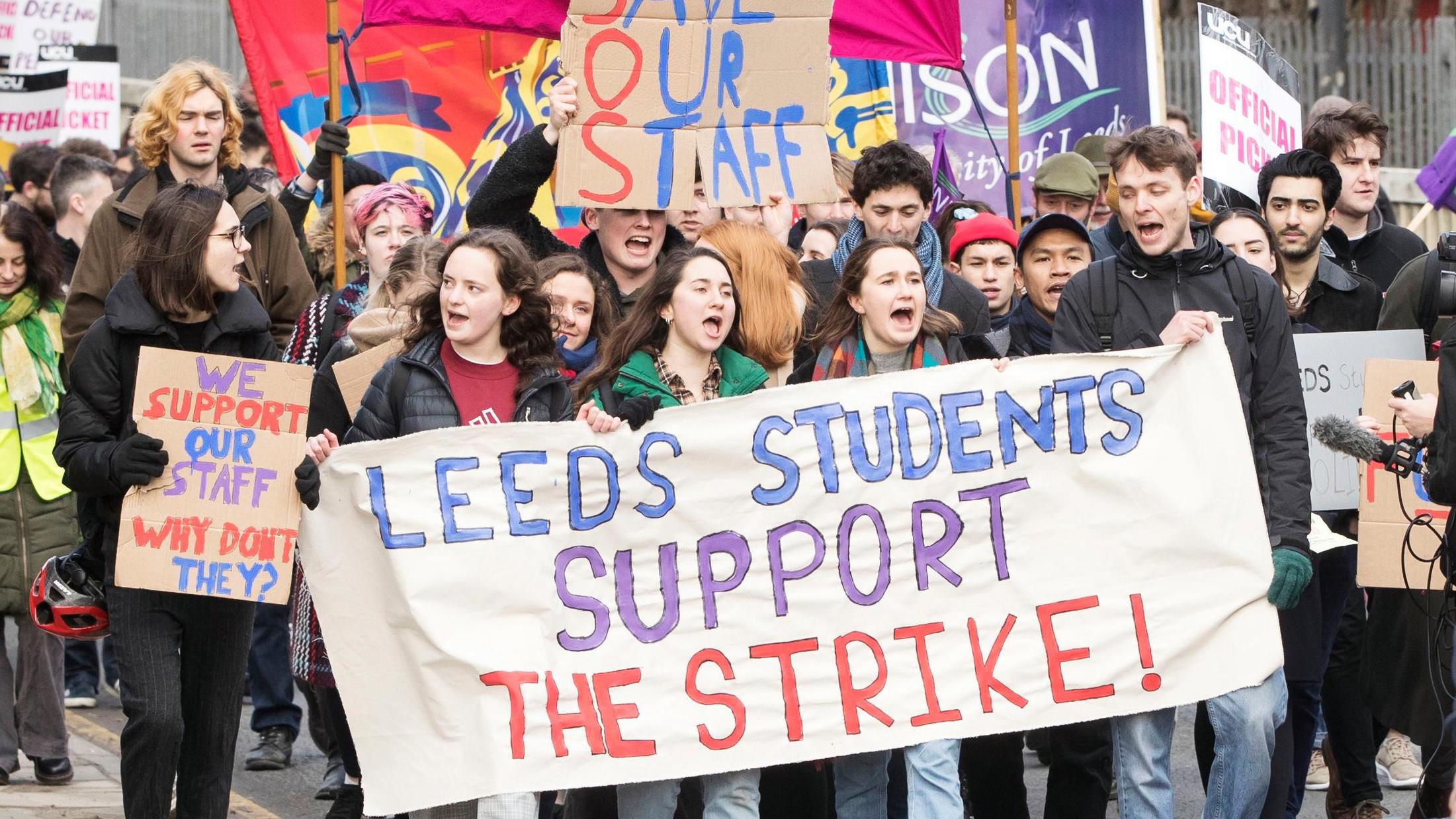As I’m writing this, you can find me bundled up behind my laptop, in my nice, warm room, wearing some hideous pyjamas, all while listening to the Mamma Mia Soundtrack over-and-over (sorry, flatmates).
And no, it’s not a classic, hungover Sunday morning, but rather during one my writing classes. While one could claim that me writing this opinionated piece could still technically be part of the curriculum, this sadly isn’t the case this time. Namely, this is because some university staff members have gone on strike.
You knew about this of course due to what can only be described as a tsunami of generic university emails. But why are they striking? The short answer, as always, is money. The two-week ‘Industrial Action’ is organised by the UCU, the University and College Union, as a way to send a message to employers. The strike is held for and by employees of 60 universities, including Leeds University, who feel that they are not listened to in their requests for better income and pensions. A seemingly understandable cause, but is it fair to us students?
Don’t get me wrong, I’m not one to complain about having a lie in for two extra days a week. Still, while it might only be two missed seminars for me (which thankfully were still discussed well by my teacher), I can’t help but wonder what it’s like for other students. Are there new medical students who are now already behind because of a cancelled class, cramming even harder than they already usually do? Is there an international postgraduate student, who barely saved enough money to even study in the famously expensive UK, who paid over 20 grand to not even have the two contact hours they should have had? All because of a strike.
I stand completely behind the employees joining the strike, and most education-focused strikes for that matter. A grand part of educational staff are still underpaid, overworked, seen as numbers, unequally treated and so on by their employers. All the while, educators have the power to be essential pillars of our society, when treated right.
Yes, that is very unfair, and yes, this should not be the case. According to the UCU website, ‘anyone who works as an academic, lecturer, trainer, instructor, researcher, administrator, manager, computer staff, librarians or postgraduate in a UK university, college, prison, adult education or training organisation can join UCU’.
But what about the overworked and overpaying students? What about primary school teachers? What about the non-educational staff at universities? But what about the janitors who clean university toilets to near perfect? Or the cafeteria staff who give students and professors alike the coffee they desperately need in the morning? Aren’t they essential to a University too?
The point I’m trying to make isn’t that one party in the world of education has it worse than the other, but rather the opposite. At this rate, this will just continue in a vicious circle of losses for every party involved at university, and education in general. Whether it’s the students, educational staff or other parties, we are set-up to always lose in some way in the current world of education by default. So why not join forces?
Whether it’s the employers, the current capitalist structure of education or even the government you think is to blame for education being stuck, won’t we be more powerful if we aim to change it together, rather than just focussing on our own side of the problem? Even if we lose again, at least we’ll be supporting each other to improve our education and society.
Image: The Times

